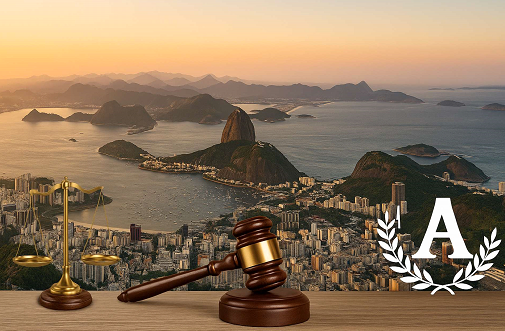
Introduction to Technology Law in Brazil
Brazil's technology law covers intellectual property rights, data privacy, software licensing, e-commerce regulations, and cybersecurity frameworks. International businesses must navigate these complexities to ensure smooth operations.
Regulatory Framework Overview
ANATEL, ANPD, and BCB are key regulators shaping technology-related compliance in Brazil, particularly regarding telecommunications, data protection, and fintech.
Software Licensing
Licensing agreements must comply with Brazilian IP regulations, including detailed terms for use, modifications, royalties, and dispute resolutions.
Data Privacy and LGPD Compliance
The LGPD governs data processing activities, mandating explicit consent, data minimization, transparency, and prompt breach notifications.
Cybersecurity Measures
Companies must adhere to cybersecurity norms set by ANPD, ensuring data integrity, confidentiality, and incident response capabilities.
Intellectual Property Protection
INPI oversees patents, trademarks, and copyrights to protect technological innovations and software developments.
E-Commerce Regulations
Brazilian laws require clear consumer information, fair marketing practices, secure transactions, and adherence to CDC standards.
Fintech and Digital Payments
Brazil's fintech industry is highly regulated, with licensing requirements set by the Central Bank and CVM. These requirements focus on consumer protection and anti-money laundering.
Emerging Technologies and AI
Brazil is shaping AI, blockchain, and IoT policies, balancing innovation incentives with ethical and privacy safeguards.
Mergers and Acquisitions in Tech
Due diligence must address IP, data privacy, cybersecurity, labor, and antitrust compliance in tech sector transactions.
Litigation and Dispute Resolution
Disputes in technology law include IP infringement, data breaches, and software contract breaches, and they are often resolved via arbitration or federal courts.
Conclusion and Next Steps
Navigating Brazil's tech law landscape requires specialized legal guidance to mitigate risks and leverage market opportunities effectively.
Frequently Asked Questions
- What regulatory bodies govern technology law in Brazil?
ANATEL regulates telecommunications, ANPD governs data protection under LGPD, and BCB oversees fintech licensing.
- How is software protected under Brazilian law?
Software is protected primarily by copyright; software patents are restricted but possible when tied to hardware or technical inventions.
- What are the LGPD compliance requirements?
Organizations must obtain explicit consent, limit data use, appoint a Data Protection Officer, and notify breaches to ANPD.
- When do fintechs require licenses?
Fintechs providing payment services must register with the Central Bank and comply with AML/KYC regulations.
- How does Brazilian consumer law impact e-commerce?
E-commerce must comply with the CDC, including transparent pricing, returns policy, and electronic invoicing.
- Are cryptocurrencies regulated?
Cryptocurrency exchanges must register with the Central Bank or partner with authorized institutions; some tokens are regulated as securities.
- What legal issues surround blockchain contracts?
Smart contracts must comply with contract law, including digital signature validity and enforceability.
- What policies exist for AI regulation?
Brazil’s AI strategy currently promotes ethical use, transparency, and bias mitigation without restrictive legislation.
- How do we protect intellectual property in tech?
File patents at INPI, register trademarks, and protect software copyrights for comprehensive IP coverage.
- What are cybersecurity requirements?
Implement security frameworks to protect data integrity and confidentiality and comply with LGPD breach notifications.
- How are mergers in the tech sector approached?
Conduct thorough due diligence on IP, data compliance, labor, tax, and antitrust to avoid post-merger liabilities.
- What dispute resolution methods are used?
Arbitration is common alongside federal courts for IP and data disputes.
- How does ANATEL affect tech companies?
ANATEL regulates network infrastructure, spectrum use, and service quality, requiring licenses for telecom operations.
- What consumer protections apply online?
Consumer rights include refund policies, data privacy, and transparent transaction terms.
- Are there tax incentives for tech R&D?
Certain states and federal programs offer technology innovation and software development tax benefits.
- What labor laws affect tech companies?
Employment contracts, outsourcing rules, and remote work regulations under CLT apply.
- How can cross-border data transfer compliance be ensured?
Use ANPD-approved contracts, explicit consent, or adequacy decisions.
- What are SaaS agreement essentials?
Clear service descriptions, SLAs, data ownership, privacy, and liability clauses are mandatory.
- How to handle IP enforcement?
Use administrative cease-and-desist, judicial injunctions, and negotiate settlements.
- What are the challenges for foreign investors?
Navigating regulations, cultural differences, local partnerships, and currency controls requires specialized legal advice.
To send an email: [email protected]

 Mr. Alessandro Jacob speaking about Brazilian Law on "International Bar Association" conference
Mr. Alessandro Jacob speaking about Brazilian Law on "International Bar Association" conference